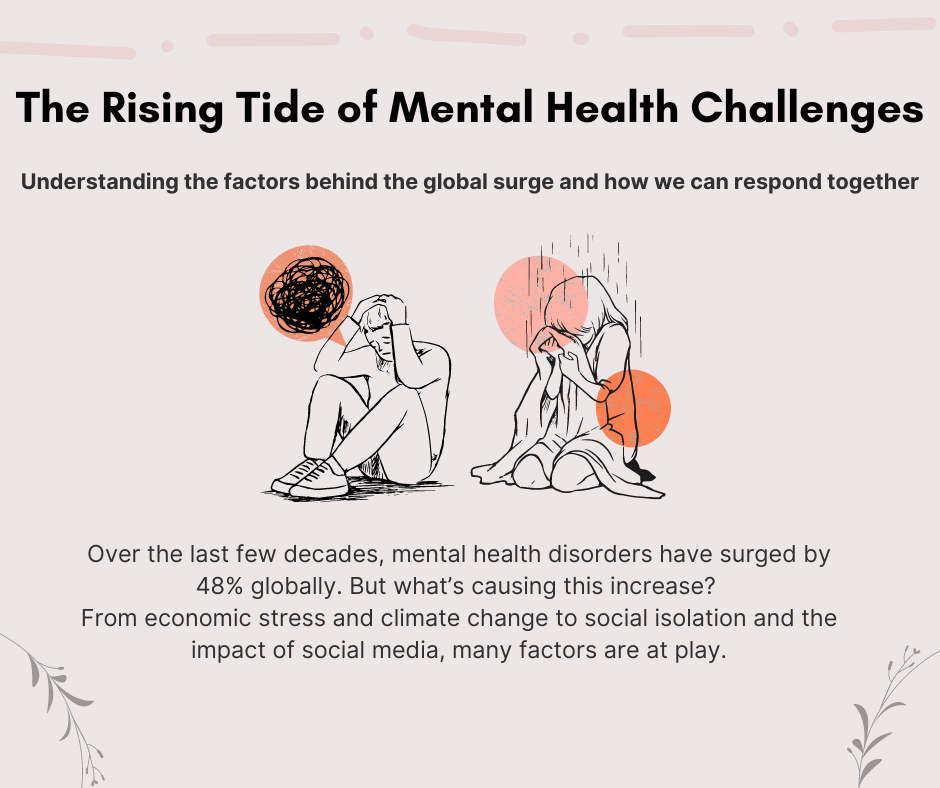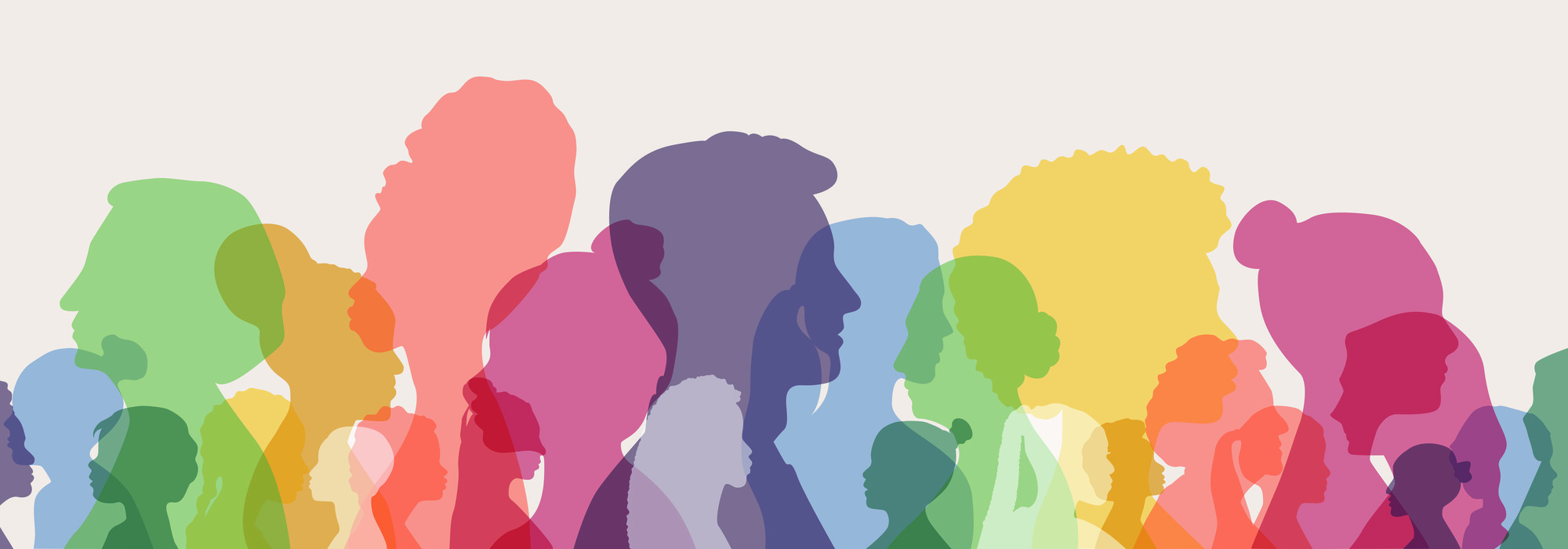
Understanding the Rise in Mental Health Challenges
Why mental health issues are on the rise: what you need to know
If you’ve been feeling anxious, depressed, or overwhelmed lately, you’re not alone. Mental health issues are becoming more common worldwide. Since 1990, mental health disorders have increased by nearly 50%, affecting not just individuals but entire communities and economies, costing close to a trillion dollars annually.
But what’s causing this rise in mental health problems? Let’s take a look at the key factors.

The Roots of Mental Health Problems
-
- Biological Factors: Some mental health conditions, like depression or schizophrenia, can run in families. Genetics and brain chemistry play a role here.
- Personal Experiences: Your past experiences, self-esteem, and ability to handle stress are crucial. If you struggle with low self-esteem, you might be more prone to anxiety or depression.
- Social and Environmental Factors: External pressures like discrimination, poverty, or living in difficult environments can have a big impact on your mental well-being.
While these causes haven’t changed much, the world around us has shifted dramatically in recent years, contributing to the surge in mental health problems.
Key Drivers Behind the Increase in Mental Health Issues
-
- Social Media: While social media connects us, it can also lead to unhealthy comparisons and feelings of isolation, especially for young people.
- Economic Stress: The gap between the wealthy and poor is widening, causing more financial stress and feelings of hopelessness. Economic struggles are closely linked to anxiety and depression.
- Climate Change: Extreme weather events, like floods or heatwaves, are becoming more common and traumatic. These experiences can lead to anxiety, PTSD, and depression.
- Urbanization and Isolation: As people move to cities for better opportunities, many leave behind their support systems. Living alone in crowded cities often leads to loneliness and mental health struggles.
Moving Forward
The rise in mental health issues isn’t just a personal problem—it’s connected to big social and environmental changes. To truly address this, we need both individual care and larger societal changes, like tackling economic inequality, climate change, and social isolation.
If you’re struggling, know that it’s okay to ask for help. Whether it’s reaching out to a friend, speaking to a therapist, or simply taking small steps to care for yourself, every action counts. Together, we can create a world where mental health is a priority, and support is always available.



